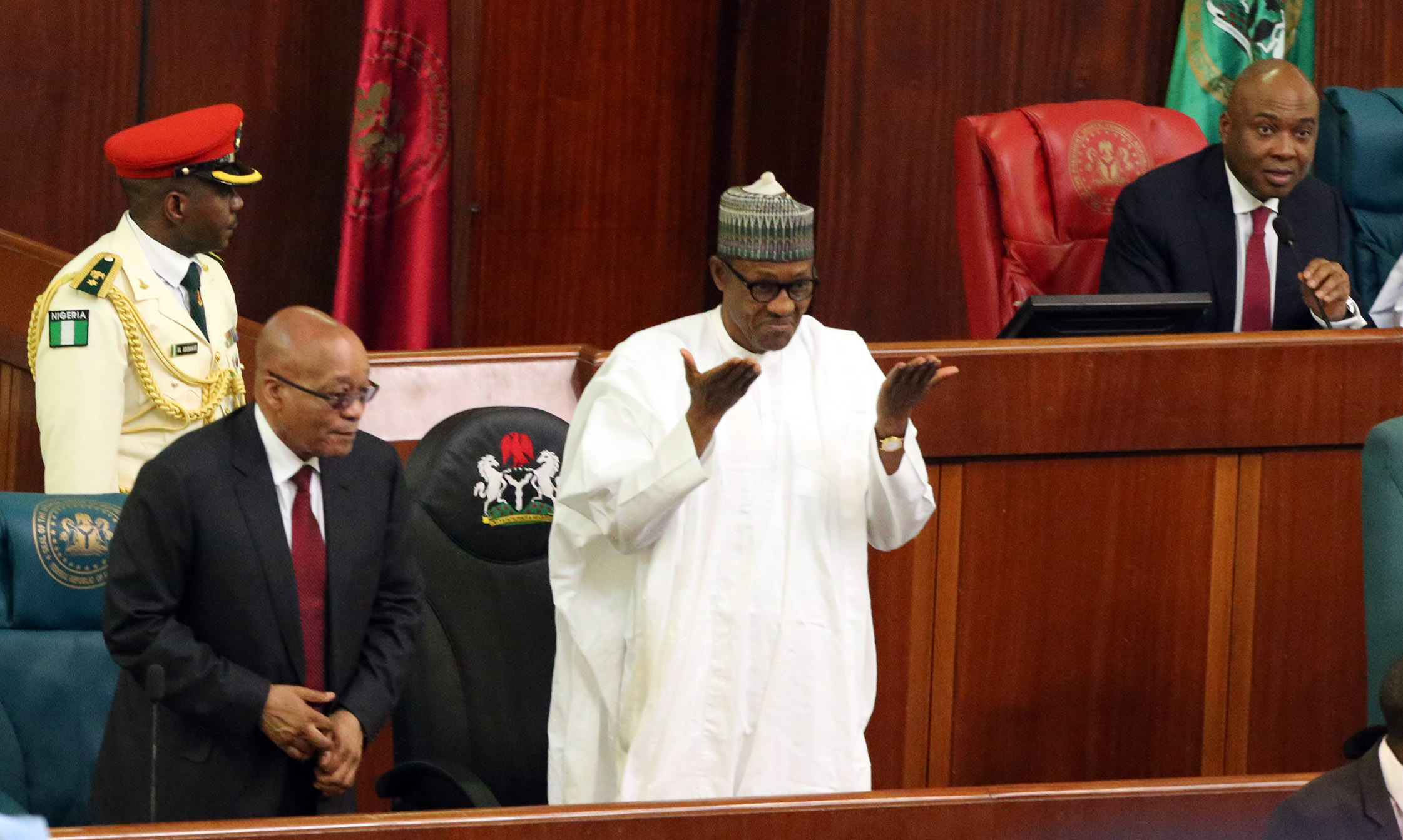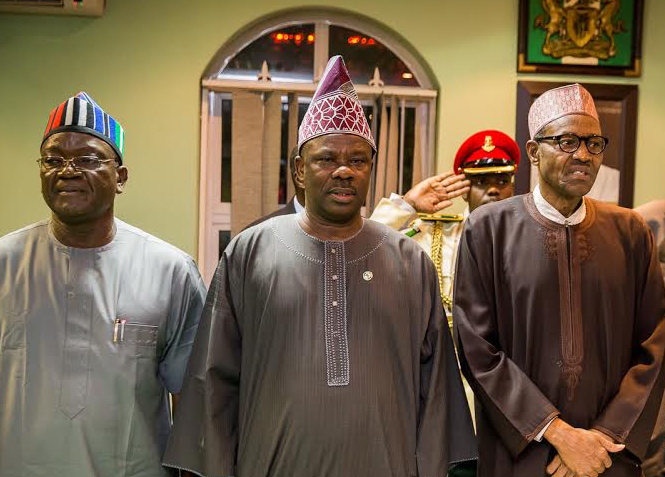In December last year, Sokoto State Governor, Aminu Waziri Tambuwal, announced the release of N2.6billion for the payment of backlog of arrears of gratuity to nearly 2000 of the state’s former workers. The payment captured those who retired from 2011 until August, 2015. The release of the funds elicited wide commendation from the beneficiaries, their families, and the public in general. Of the 1902 beneficiaries, approximately 1400 earned one million Naira and above. In essence, in one payment swoop, Sokoto state government created 1400 new millionaires from among its citizenry.
The impact of this important gesture cannot be overemphasized, especially when we consider the multiplier effect on the economy of Sokoto state and that of the neighbouring. Let us look at the economics of the multiplier effect. To begin with, what is a simple definition of the multiplier effect? Every time there is an injection of new demand into the circular flow there is likely to be a multiplier effect. This is because an injection of extra income leads to more spending, which creates more income, and so on. The multiplier effect refers to the increase in final income arising from any new injection of spending.
The size of the multiplier depends upon household’s marginal decisions to spend, called the marginal propensity to consume (mpc), or to save, called the marginal propensity to save (mps). It is important to remember that when income is spent, this spending becomes someone else’s income, and so on. Marginal propensities show the proportion of extra income allocated to particular activities, such as investment spending by construction firms, saving by households, and spending on imports from abroad. For example, if 80% of all new income in a given period of time is spent on local products, the marginal propensity to consume would be 80/100, which is 0.8.
To look at it in another way, if, as one of my neighbours in Sokoto did, a beneficiary opted to complete the building of his new house with his share of the gratuity payment, the project injects extra demand and output into the economy of the state. Many businesses, including architects, suppliers of blocks, sand, water, iron rods, woods etc will benefit directly from the beneficiary’s expenditure. As economists say, building a new house generates a new flow of factor incomes —including wages and profits, so the multiplier effect is likely to be strong and the resultant impact on GDP quite large.
Advertisement
This reasoning came about because injections of new demand for goods and services into the circular flow of income stimulate further rounds of spending – in other words “one person’s spending is another’s income.” This can then lead to a bigger eventual effect on output and employment. As well as calculating the multiplier in terms of how extra income gets spent, we can also measure the multiplier in terms of how much of the extra income goes into savings, which in turn supports banks with enough cash to lend to other sectors to ensure continued growth of the economy of the country.
Doling out N2.6billion to pensioners is part of a larger economic policy put in place by the Tambuwal administration to impact positively on the socio-economic landscape of Sokoto state.
Within its first months in office, the government announced series of measures to stimulate the economy and provide job opportunities for the people. These measures include clearly defining areas of competitive advantage and working hard on realizing their full potentials. Such areas consist of rice, tomato, onions and wheat farming, development of solid minerals sector, and establishment of the Sokoto State Small and Medium Scale Development Agency (SOSMEDA) which will coordinate the activities of SMEs all over the state. This is not forgetting the plan to establish three micro-finance banks to lend cash and support services to women and small and medium scale businesses.
Advertisement
The economic potential of Sokoto is enormous. With the Cement Company of Northern Nigeria and other important factories located in the state, Tambuwal has taken the path of industrialization. In efforts to tap the huge potential from abundant water resources available, irrigation farming has now been given the needed attention it deserves. Few months ago, government reclaimed over 1000 hectres of land abandoned since 1927 in Kware to add to the land prepared for irrigation. This new project will be executed under the Agricultural Transformation Agenda Support Programme- Phase I. The project involves the construction of 175 irrigation water conveyance canals; 120 units of hydraulic structures; 55 kilometers of feeder roads; five units of primary schools, two primary health centres and two community markets among others.
Tambuwal’s vision is to develop the human resource capacity of the people of Sokoto to meet modern challenges. Since his coming to power, he has invested handsomely in education, based on a vision premised on developing skills for the future. For the first time, the highest allocation in the state’s budget in the 2016 fiscal year went to education. To complement that effort, government followed it up with the declaration of a state of emergency in the sector.
In the areas of employment and youth empowerment, a few weeks back, government started the registration of 25,000 youths expected to benefit from a skills acquisition scheme over a two-year period. In the coming weeks, government will unveil a special training scheme for artisans and semi-skilled professionals, to enhance output and marketing potential for their products.
Sokoto government has also signed an MoU with the Usman Danfodio University for the training of nurses and birth attendants, whose services will be deployed in all parts of the state. To appreciate Sokoto indigenes studying health-related courses, government has offered them automatic employment upon successful completion of their studies.
Advertisement
In Nigeria, we are used to having corporate organisations run promos giving customers a chance to win a few millions. If the idea is to promote boost sales and in the long run bail people out of financial difficulties, having an entity pay its workers as much as N2.6billion deserves praise and appreciation from all concerned.
As a leader, Tambuwal is leading from the front, working in tandem with his team to bring about needed change in the socio-economic landscape of his dear state. In Sokoto today, many have expressed the confidence that Tambuwal will continue to leverage on his experience to bring about the needed change in the life of the state. What we have been served by Tambuwal and his team is a development module that integrates Sokoto’s historical peculiarity and huge potential, while seeking to modernise all aspects of its life.
Imam is special adviser on media and public affairs to Aminu Tambuwal, governor of Sokoto state
Advertisement
Views expressed by contributors are strictly personal and not of TheCable.
1 comments








Bravo Gov. Tambawal! We are with you!!